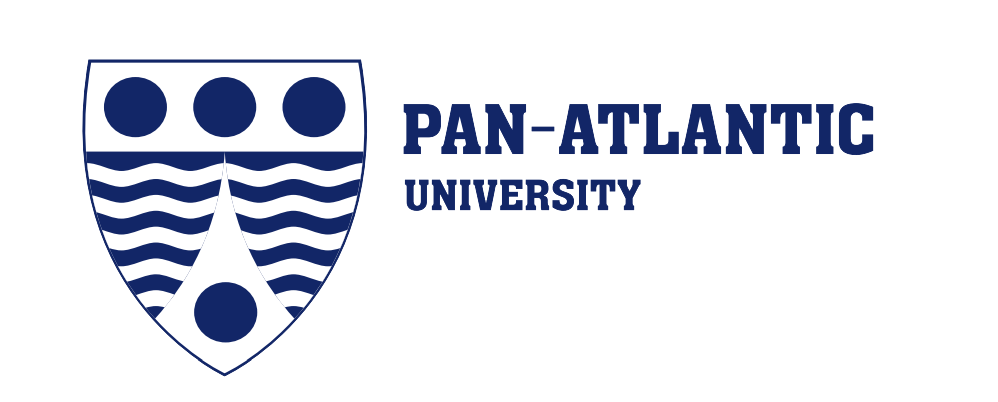PHD in Media and Communication

Rationale for the Programme
SMC Doctorate in Media and Communication aims
- to support the National Universities Commission and its stated agenda of producing an adequate number of doctorate degree holders to staff the faculties of the growing number of licensed universities, many of which take off with mass communication and communication-related studies in the Social Sciences, Humanities, Arts, Management or Administration;
- to strengthen our institutional base as a School and University committed to providing a holistic, purpose-driven education that will cater to the developmental needs and aspirations of Nigeria and the African continent;
- to institute and nurture a robust culture of research consonant with the highest professional competence, ethical conduct and academic excellence in the disciplines of communication and media;
- to contribute more fully to the cultural and creative industries through the dialectical process of interfacing conceptual/theoretical knowledge with practical experience where academic and industry-focused approaches to learning converge.
Quality Assurance and International Partnerships for the Programme
To ensure the highest international quality standards, we are in partnership or partnership discussion with several institutions among the most notable of which are following:
- the University of Central Lancashire (UCLAN), the first university in the UK to introduce degree-level and post graduate studies in journalism and mass communication; this institution pioneered journalism studies in 1897 and introduced degree-level studies in the communication discipline in the early 90s. UcLan has robust and internationally- respected doctorate programmes in Journalism, Media and Communication ranked among the best across the UK and Europe. It has a special African focus and flavour as many of its key faculty are of African origin, coming from countries such as South Africa, Zimbabwe, Ghana, Nigeria, Kenya. To date, UCLan has also the largest and most sophisticated Media Factory in t h e UK a n d Europe and hosts several international/global consultancies/research studies such as the World News Media Annual Survey, World and African Editors Annual Workshop, the Media and Digital Enterprises (MADE) conference, and the BBC which has this year moved its headquarters to the Lancashire region (from London).
Through the Memorandum of Understanding signed between us since 2012, UClan is in partnership with us for the PhD and MSc programmes, as well as for our professional/executive programmes. The partnership includes internship study periods in the UK/Europe for our students, exchange visits for our faculty, staff and students, as well as research and publications collaborations.
- The University of Navarra has a long standing and existing relationship with the Pan-Atlantic University. Since the earliest days of the founding of the Lagos Business School, through its world famous school, the IESE, University of Navarra has assisted the development of the PAU. The Faculty of Communications at Navarra has had a hand in the training and development of SMC faculty, and the development of our programmes since 2006
Internal Resources
Our decision to start the PhD in Media and Communication is founded on the availability of the requisite number and quality of scholars, professionals and modern facilities for the running of the programme. This includes professors, PhDs (with over 10 years post-doctoral experience and international exposure), an adequately stocked library (both physical and virtual), increasing research papers in reputable publications and conference hosting and participation in Nigeria, Africa, and worldwide.
To encourage a virile research culture, SMC is also home to very notable centres such as the Nollywood Studies Centre, the GfK International Centre for Market and Social Research, and the Centre for Leadership in Journalism (CLeJ). We are also host to high level national and international conferences, workshops, colloquiums, forums, the latest of which are the Media and Popular Culture in Africa (2013),Distilling the Freedom of Information Act for Public Participation, in collaboration with the National Human Rights Commission, and the forthcoming African Film and Investment Summit, etc. We are also accepted and recognized by international and national professional bodies as a centre of visible and verifiable excellence in media and communication studies and practice. Our past and present collaborations with and sponsorships by Samsung, the DFID, British Council, Coca-Cola, MTN, among others attest to this standing.
SMC has become the leading and most preferred training institution for post-graduate studies in media and communication within Nigeria, with internationally acclaimed programmes, quality, standards, processes, systems, faculty and curricula.
Faculty
Our greatest strength which we bring to bear on the PhD programme in Media and Communication is the knowledge and skill-sets available in such areas as Digital and New Media, Creativity and Innovation, Leadership and Entrepreneurship, and of course, Ethics. The SMC boasts of such notable faculty members as Professor Albert Alos (first Vice-Chancellor of PAU, Professor Manuel Elegido (current Vice-Chancellor), Professor Emevwo Biakolo (founding Dean), Associate Professor James Tsaaior, Dr. Joe Bel-Molokwu (former Executive Secretary of APCON), Dr. Eduard Schmitter, Dr. Isah Momoh, Dr. Austin Nweze, Dr. Silk Ogbu, Dr. Pius Onobhayedo, Dr. Ike Obiaya, Dr. Phil Osagie and Dr. Ngozi Okpara. We also count on a galaxy of visiting faculty members drawn from other leading universities in Nigeria, Africa and worldwide, especially Africans in the Diaspora, such as Profs Onookome Okome (University of Alberta, Canada), Dr. Hyginus Ekwuazi (University of Ibadan), Dr. Oloruntoba Sunday (University of Lagos), Dr. Doyin Abiola, Prof Jonathan Haynes (Long Island University), and Prof Amiso George (Texas Christian University).
[button id=”” style=”” color=”theme” type=”large” size=”large” href=”https://targeturl.com” align=”none” target=”_blank”]More[/button]

